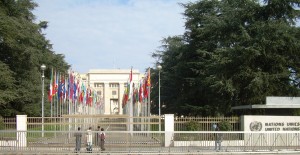
“Special procedures” is the general name given to the mechanisms used by the Human Rights Council of the UN to address either specific country situations or thematic issues in all parts of the world.
Currently, there are 31 thematic and 8 country mandates. Some examples of thematic mandates are the Special Rapporteur on the right to food, the Special Rapporteur on the situation of human rights defenders, and the Special Rapporteur on trafficking in persons, especially in women and children.
The eight countries where human rights concerns have resulted in the appointment of a Special Rapporteur are Burundi, Cambodia, Democratic People’s Republic of Korea (North Korea), Haiti, Myanamar, the Occupied Palestinian Territories, Somalia and Sudan.
“Special Rapporteur” is a title given to individuals working on behalf of the Human Rights Council who bear specific mandates to investigate, monitor and recommend solutions to specific human rights problems.
The Office of the High Commissioner for Human Rights provides these mechanisms with personnel, logistical and research assistance to support them in the discharge of their mandates.
(the above article was adapted from the content of the ‘Acting Justly’ online course)